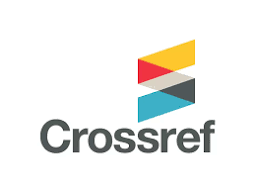Association of Asymmetrical Dimethyl Arginine with Diabetes Mellitus and Coronary Artery Disease
Keywords:
Type 2 diabetes mellitus (T2DM), Coronary artery disease (CAD), Glycosylated hemoglobin (HbA1c), Asymmetrical dimethyl arginine (ADMA)Abstract
Background: The individuals with Diabetes Mellitus (DM) have a large incidence of coronary artery diseases.
Objective: To compare the association of serum Asymmetrical dimethyl arginine (ADMA) level in diabetic patients with and without coronary artery disease. Serum ADMA acts as an endogenous nitric oxide synthase (NOS) inhibitor by competing with arginine for the active site. It is increased in the plasma of humans in different abnormal conditions like cardiac diseases, diabetes, atherosclerosis, hypercholesterolemia, hypertension and chronic renal failure
Methods: This analytical cross sectional study was conducted in the medical departments of Khyber teaching hospital & Hayatabad medical complex from October 2010 to October 2011. Both males & females’ patients of age range of 35-65 years were included in the study. Of 210 participants 70 were included in three groups, A: normal participants, B: Type 2diabetic patients & C: diabetic patients with coronary artery diasease(CAD). Biochemical analysis was done on blood sample of these participants for ADMA, lipid profile, HbA1C & fasting blood sugar.
Results: ADMA was found to be raised in both the diabetics groups with & without CAD as compared to the normal participants (03.9±1.5μmol/L vs. 02.0±0.6 and 0.6±0.2 μmol/L) p <0.0001. Amongst the diabetic groups ADMA was higher in the diabetics with CAD as compared to diabetics without CAD. Similarly lipid profile values of LDL, Total cholesterol, triglycerides were higher in the two groups of diabetics with & without CAD as compared to the normal individuals.
Conclusion: The diabetic patients with coronary artery disease had significantly higher serum ADMA concentration than simple diabetics and normal healthy subjects.
Downloads
Published
Issue
Section
License
Copyright (c) 2023 Kalsoom Tariq; Bela Inayat, Mehwish Durrani, Gulnaz Begum, Nabila Sher

This work is licensed under a Creative Commons Attribution-NonCommercial 4.0 International License.
Readers may “Share-copy and redistribute the material in any medium or format” and “Adapt-remix, transform, and build upon the material”. The readers must give appropriate credit to the source of the material and indicate if changes were made to the material. Readers may not use the material for commercial purpose. The readers may not apply legal terms or technological measures that legally restrict others from doing anything the license permits.


